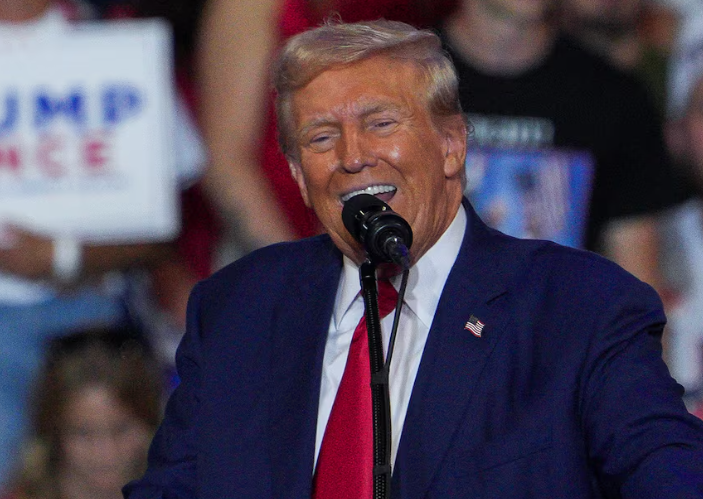A New York judge has delayed the sentencing of former U.S. President Donald Trump in his hush money criminal case until after the Nov. 5 election. Judge Juan Merchan, who originally scheduled the sentencing for Sept. 18, agreed to the delay, stating he wanted to avoid any perception of political motivation. Trump, the Republican presidential nominee, had requested the postponement, accusing the case of having “naked election-interference objectives.”
Merchan rescheduled the sentencing for Nov. 26, unless the case is dismissed before then. “The imposition of sentence will be adjourned to avoid any appearance – however unwarranted – that the proceeding has been affected by or seeks to affect the approaching Presidential election,” Merchan wrote, emphasizing the court’s impartiality.
Trump, in a post on his Truth Social platform, thanked Merchan for acknowledging that sentencing would only occur if a pending motion to dismiss the case was denied. Trump argued that the case should be dismissed as he prepares for what he called “the Most Important Election in the History of our Country.”
In the first-ever criminal trial of a U.S. president, Trump was convicted on May 30 of 34 felony counts for falsifying business records. The charges stemmed from a $130,000 payment made by his then-lawyer to porn star Stormy Daniels to cover up a sexual encounter before the 2016 election. Trump has denied the encounter and vowed to appeal the conviction.
Manhattan District Attorney Alvin Bragg’s office, which brought the charges, remains ready for the rescheduled sentencing. In his ruling, Merchan stated he would decide on Trump’s request to overturn the conviction by Nov. 12, referencing a Supreme Court decision on presidential immunity that might impact Trump’s case. However, prosecutors argue that their case concerns Trump’s personal actions, not official ones, and thus does not warrant dismissal.
Although falsifying business records carries a potential sentence of up to four years in prison, fines or probation are more common. If Trump wins the presidency, he could attempt to influence federal cases against him, but he would not have the power to intervene in state-level cases in New York or Georgia.

